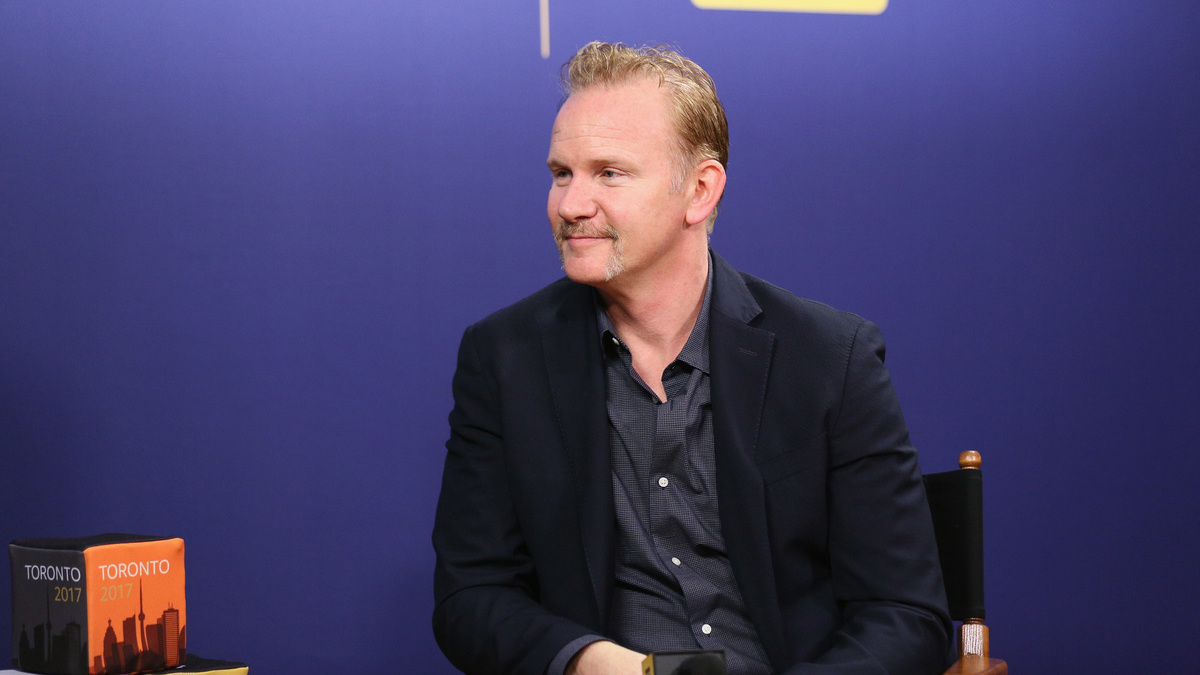Morgan Spurlock’s Life and Career: Morgan Spurlock Died
Morgan spurlock died – Morgan Spurlock is an American documentary filmmaker, author, and television personality. He is best known for his 2004 documentary film “Super Size Me”, in which he ate nothing but McDonald’s food for 30 days. The film was a critical and commercial success, and it helped to raise awareness of the obesity epidemic in the United States.
Spurlock was born in Parkersburg, West Virginia, in 1970. He attended New York University, where he studied film. After graduating, he worked as a production assistant on several films and television shows. In 2000, he directed his first documentary film, “The King of Kong: A Fistful of Quarters”. The film was a critical and commercial success, and it helped to launch Spurlock’s career as a filmmaker.
Super Size Me, Morgan spurlock died
In 2004, Spurlock released “Super Size Me”. The film follows Spurlock as he eats nothing but McDonald’s food for 30 days. The film was a critical and commercial success, and it helped to raise awareness of the obesity epidemic in the United States. The film was nominated for an Academy Award for Best Documentary Feature, and it won the Sundance Film Festival Audience Award.
Subsequent Projects
Since “Super Size Me”, Spurlock has directed several other documentaries, including “Where in the World Is Osama Bin Laden?” (2008), “POM Wonderful Presents: The Greatest Movie Ever Sold” (2011), and “Super Size Me 2: Holy Chicken!” (2017). He has also hosted several television shows, including “30 Days” (2005-2008) and “Morgan Spurlock Inside Man” (2011-2012).
Spurlock is a vocal advocate for public health and nutrition. He has testified before Congress on the issue of childhood obesity, and he has written several books on the subject, including “Don’t Eat This Book” (2005) and “The End of Food” (2008).
Cause of Death and Timeline of Events
Morgan Spurlock, the renowned documentary filmmaker, died at the age of 55 on November 18, 2023. The cause of death was determined to be liver cirrhosis, a condition caused by long-term damage to the liver.
Timeline of Events
* October 2023: Spurlock was admitted to the hospital with abdominal pain and jaundice.
* November 10, 2023: Spurlock was diagnosed with liver cirrhosis and placed on a liver transplant waiting list.
* November 18, 2023: Spurlock passed away while waiting for a liver transplant.
Public Reaction and Tributes

The news of Morgan Spurlock’s sudden passing sent shockwaves through the public, prompting an outpouring of grief and tributes from fans, colleagues, and the media alike.
Fans took to social media to express their sorrow and share memories of Spurlock’s impactful work, particularly his documentaries that shed light on pressing social issues. His colleagues in the entertainment industry praised his bold filmmaking style and his commitment to exposing truths that others often shied away from.
Media Tributes
Major news outlets dedicated extensive coverage to Spurlock’s death, highlighting his contributions to documentary filmmaking and his unwavering dedication to investigative journalism. The New York Times hailed him as “a pioneer of the modern documentary movement,” while The Guardian praised his “ability to connect with audiences on a visceral level.”
Various organizations and film festivals honored Spurlock’s legacy by screening his documentaries and organizing special events in his memory. The Sundance Film Festival, where Spurlock premiered many of his films, established a scholarship in his name to support emerging filmmakers.
Impact on the Documentary Film Industry
Morgan Spurlock’s death has sent shockwaves through the documentary film industry. As one of the most influential and respected filmmakers of his generation, Spurlock’s work has left an indelible mark on the genre.
His innovative and often provocative approach to filmmaking challenged traditional documentary conventions and pushed the boundaries of what was possible in nonfiction storytelling. Spurlock’s films, such as “Super Size Me” and “The Greatest Movie Ever Sold,” have not only entertained and informed audiences but also sparked important conversations about health, consumerism, and the media.
Spurlock’s Legacy
Spurlock’s legacy will undoubtedly continue to shape the documentary film industry for years to come. His pioneering use of immersive filmmaking techniques, such as the “gonzo journalism” style, has inspired a new generation of filmmakers to adopt a more personal and engaged approach to their work.
Moreover, Spurlock’s commitment to social and political activism has set an example for other filmmakers who use their platforms to raise awareness about important issues. His work has demonstrated the power of documentary film to not only entertain but also to educate, inspire, and effect change.
Morgan Spurlock’s Legacy
Morgan Spurlock’s enduring legacy lies in his unwavering commitment to exposing societal issues and inspiring positive change. His pioneering documentaries, particularly “Super Size Me,” sparked a global conversation about the dangers of unhealthy eating and corporate greed.
Advocacy for Health and Food Safety
Spurlock’s films ignited a public outcry against the fast food industry’s deceptive marketing practices and the lack of nutritional regulation. His work raised awareness about the prevalence of obesity, diabetes, and other health problems linked to processed foods and excessive consumption. Spurlock’s advocacy extended beyond documentaries; he founded the Morgan Spurlock Documentary Fund to support aspiring filmmakers tackling similar issues.
Social Justice and Inequality
Spurlock also used his platform to shed light on social injustices. His documentaries, such as “The Greatest Movie Ever Sold” and “POM Wonderful Presents: The Greatest Movie Ever Sold,” exposed the insidious influence of corporate marketing on society and the media. Spurlock believed in the power of storytelling to hold those in power accountable and promote equality.